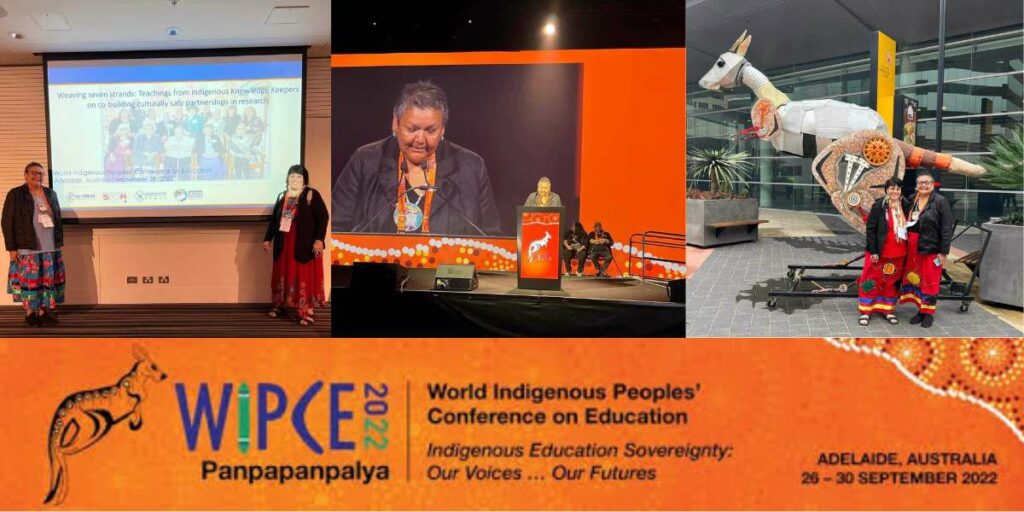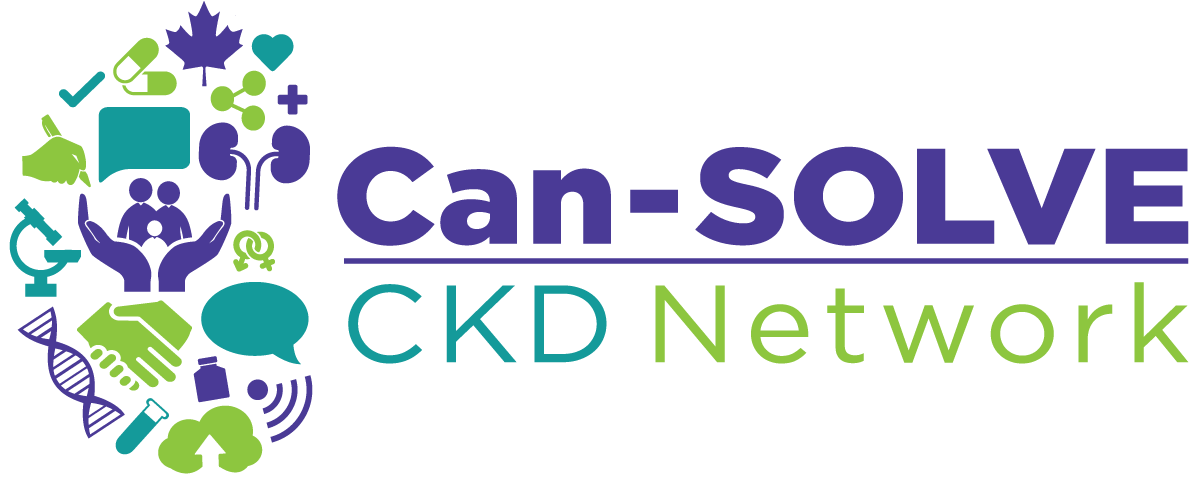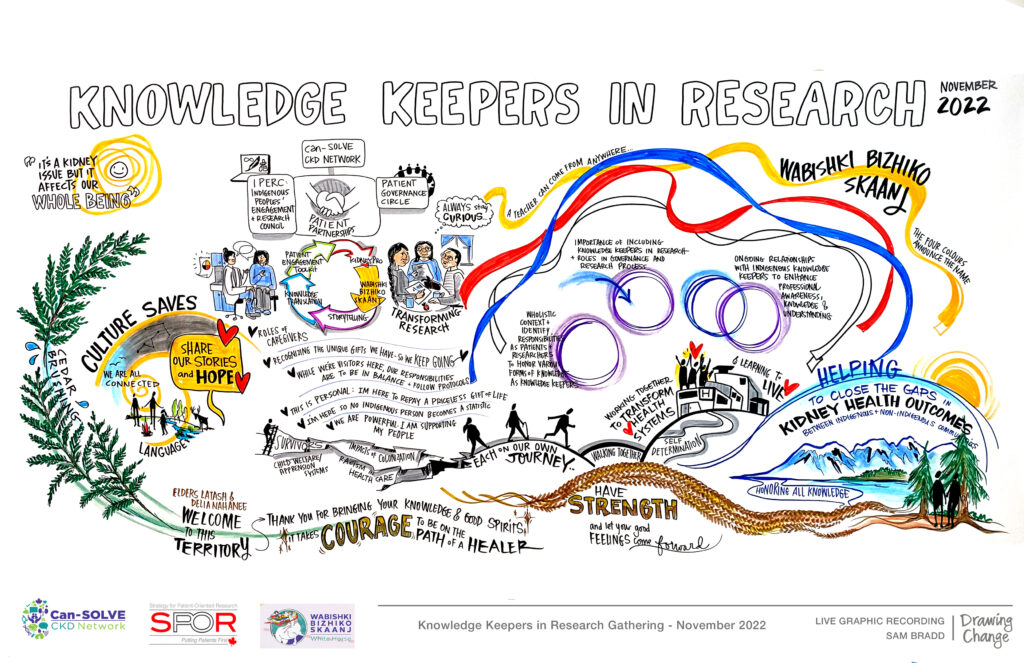Completion of Wabishki Bizhiko Skaanj Learning Pathway
A key highlight of 2022 was the completion of Wabishki Bizhiko Skaanj (wah-bish-kih biish-ih-goo skaa-nch), a training platform that aims to enhance users’ knowledge and awareness of racial biases, Indigenous voices and stories, the impact of colonization on Indigenous health, and culturally safe health research practices.
Wabishki Bizhiko Skaanj is an exemplary tool for helping non-Indigenous people learn about cultural competency within the Can-SOLVE CKD Network and beyond. Markers within the pathway provide learners with a general overview of the rich histories, cultures and ways of knowing, being and doing of First Nations, Inuit and Métis. The markers also provide learners with important guidance on how to engage respectfully and equitably with Indigenous communities.
Three components recently added to the learning pathway include: Supporting Each Other’s Journey Land Acknowledgment Learning Series, Knowledge Keepers in Research, and a Cultural Competency Knowledge Bundle. These components are rooted in the core values of Respect, Reciprocity, Relevance, Relationships, and Reflection.
Moving forward, the Learning Pathway will be supported by the newly created position of Cultural Competency Manager with Craig Settee in the role.
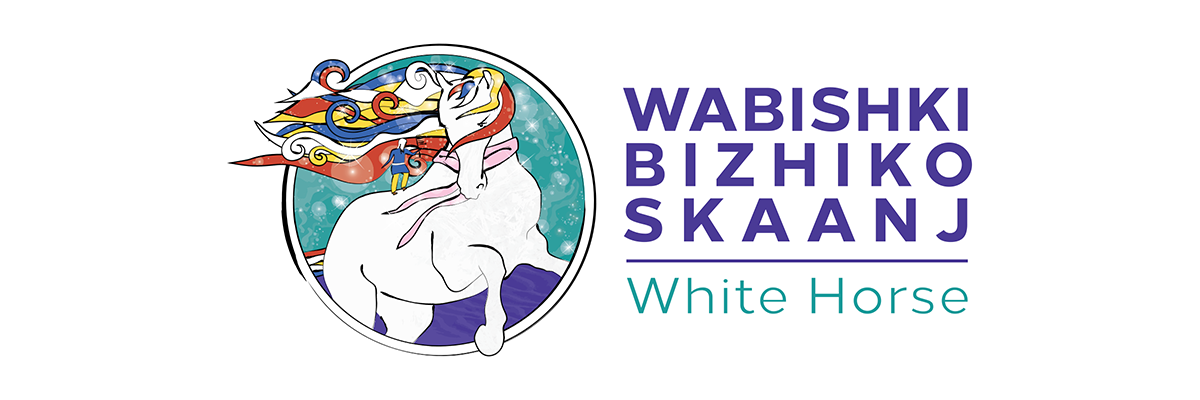
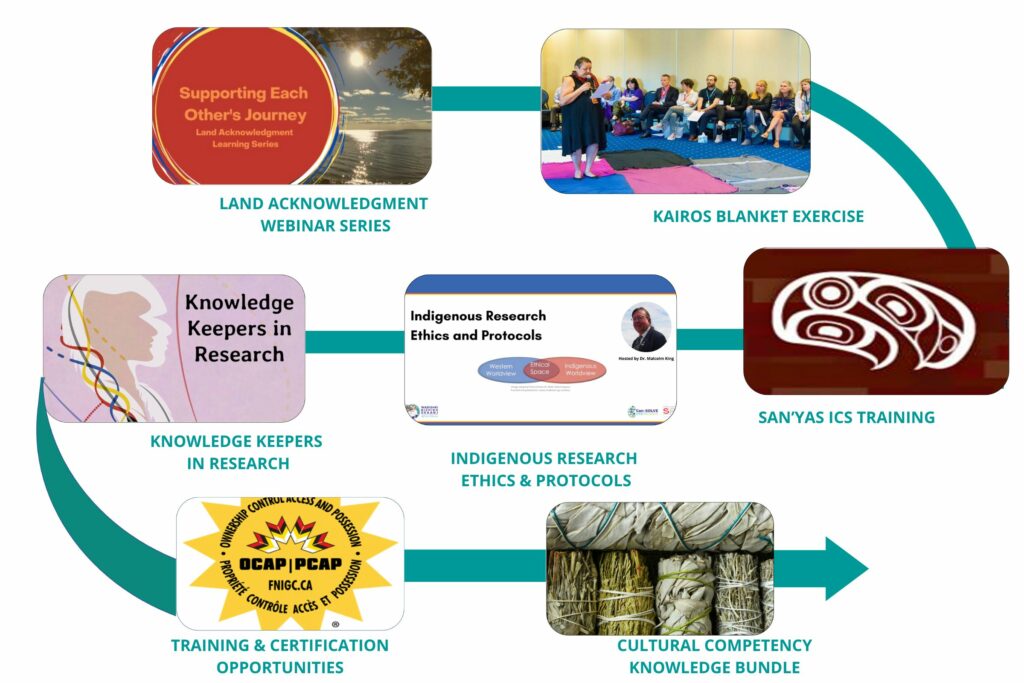
“Creating space for Métis, First Nations or Inuit voices and experiences changes the narrative of our collective colonial history and the impacts felt by Indigenous communities.”
PANIKPAK (LETITIA) POKIAK
Indigenous Peoples’ Engagement and Research Council member
Supporting Each Other’s Journey
Another resource launched this year that will support increased cultural competency is the Supporting Each Other’s Journey Land Acknowledgment Learning Series.
This four-part webinar series, led by a series guidebook, aims to inspire deeper understanding of Land Acknowledgments. The webinar series features patient partners, non-Indigenous panelists, Knowledge Keepers and Indigenous health researchers. Along with being freely available online, the series was presented to BC Renal employees.
The Land Acknowledgment Learning Series was funded partly by the generous support of BC Renal.
Knowledge Keepers in Research
This step in the learning pathway includes a virtual guidebook that aims to encourage researchers to honor various forms of traditional knowledge shared by Indigenous Knowledge Keepers and help them translate those teachings into practice.
In November 2022, nine Knowledge Keepers from across Canada met in Vancouver to complete the video component of this work, which will aim to further enhance their teachings provided in the virtual book. We look forward to sharing the new video component in Spring 2023, with the goal of supporting network researchers who wish to incorporate traditional knowledge in their research projects through respectful engagement.
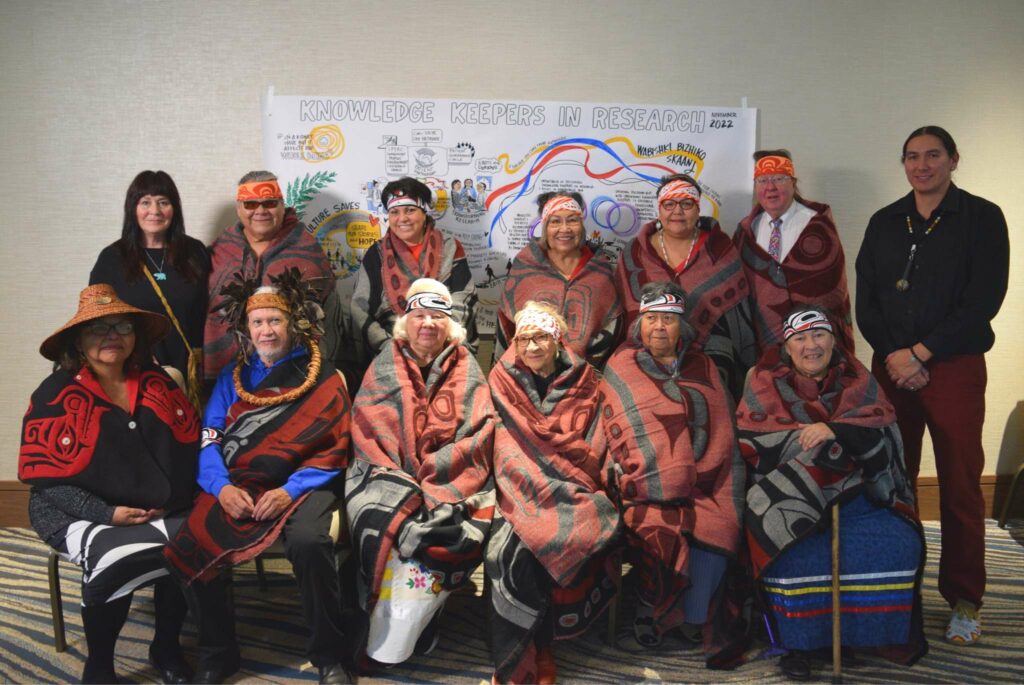
Cultural Competency Knowledge Bundle
The final learning marker in the Wabishki Bizhiko Skaanj Learning Pathway is the Cultural Competency Knowledge Bundle. This self-directed resource page contains a collection of multimedia tools to support the user on their cultural competency journey.
The Cultural Competency Knowledge Bundle is a living document and will be updated with new resources to support health researchers and individuals.
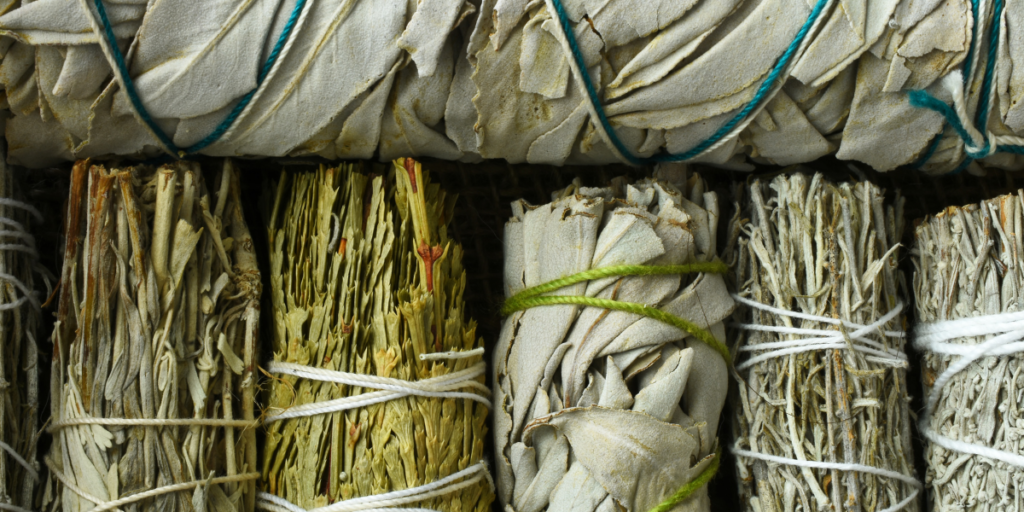
On the world stage
The Learning Pathway was presented at the World Indigenous Peoples’ Conference on Education, which is the largest and most diverse Indigenous education forum in the world with representation from 90 countries.
The conference took place from September 26-30, 2022 in Tandarnya (Adelaide, Australia) on the lands of the Kaurna Nation. Indigenous Peoples’ Engagement and Research Council co-chair Helen Robinson-Settee and Knowledge Keeper Dr. Mary Wilson presented on Knowledge Keepers in Research and the Wabishki Bizhiko Skaanj Learning Pathway.
